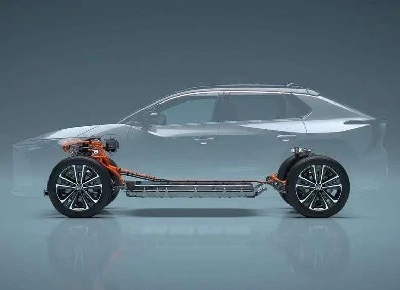BYD pollution incident makes China’s electric vehicle industry face strict environmental supervision requirements
China’s EV industry is struggling to regain lost ground after months of lockdowns that led to a decline in production and sales, however, BYD’s environmental pollution investigation at this time is a blow to the EV industry
Latest setback
Harmful pollutants in paint used at the company’s factory in Changsha, China, are said to have caused nearby residents to suffer from nosebleeds, respiratory discomfort and vomiting. The company is currently under investigation by local authorities.
The BYD investigation is the latest setback for China’s electric vehicle industry. China, the world’s largest consumer of electric vehicles, is trying to make up for lost capacity after months of lockdowns that brought demand and economic activity to a standstill.

“Everyone is shocked that the lockdown has been going on for so long. A lot of factories are struggling to get back to capacity right now.” BYD has maintained relatively stable production under the impact of China’s epidemic prevention policy. For the auto industry, the investigation casts a shadow over such an electric vehicle company.
Berkshire Hathaway
BYD – backed by Warren Buffett’s Berkshire Hathaway – has been able to maintain production as other big EV makers have also been battered by lockdown measures because The regions and cities where its factories are located have not imposed the strictest lockdowns.
Overall, car sales were hit hard, plunging 36% in April (Shanghai didn’t sell a single car in April), while car production fell 41%, the data showed. Auto sales began to pick up in May as the lockdown was lifted, but NIO, whose factory is located in Shanghai, still sold only 7,024 vehicles for the month.
Even Tesla, the world’s No. 1 electric car maker by sales, has not been spared, with the US automaker selling just 1,700 Chinese-made Model 3s and Model Ys, down 85% from a year earlier.
Heated debate
The investigation into BYD’s pollution could also refocus attention on allegations of possible environmental damage at EV suppliers, including Tesla.
There has been a heated debate over pollution, with some Chinese consumers insisting that local brands such as BYD need support amid the difficult business environment caused by the coronavirus lockdown.
The group posted strong sales in May despite complaints from residents near BYD’s Changsha factory that drew attention to the company.
But for the electric vehicle industry as a whole, a slowdown in China still poses a risk. The government is paying more attention to the development of the new energy vehicle industry.
Recently, the government has released a series of auto consumption subsidy policies to help automakers resume production of electric vehicles – electric vehicles account for 23% of China’s car sales



